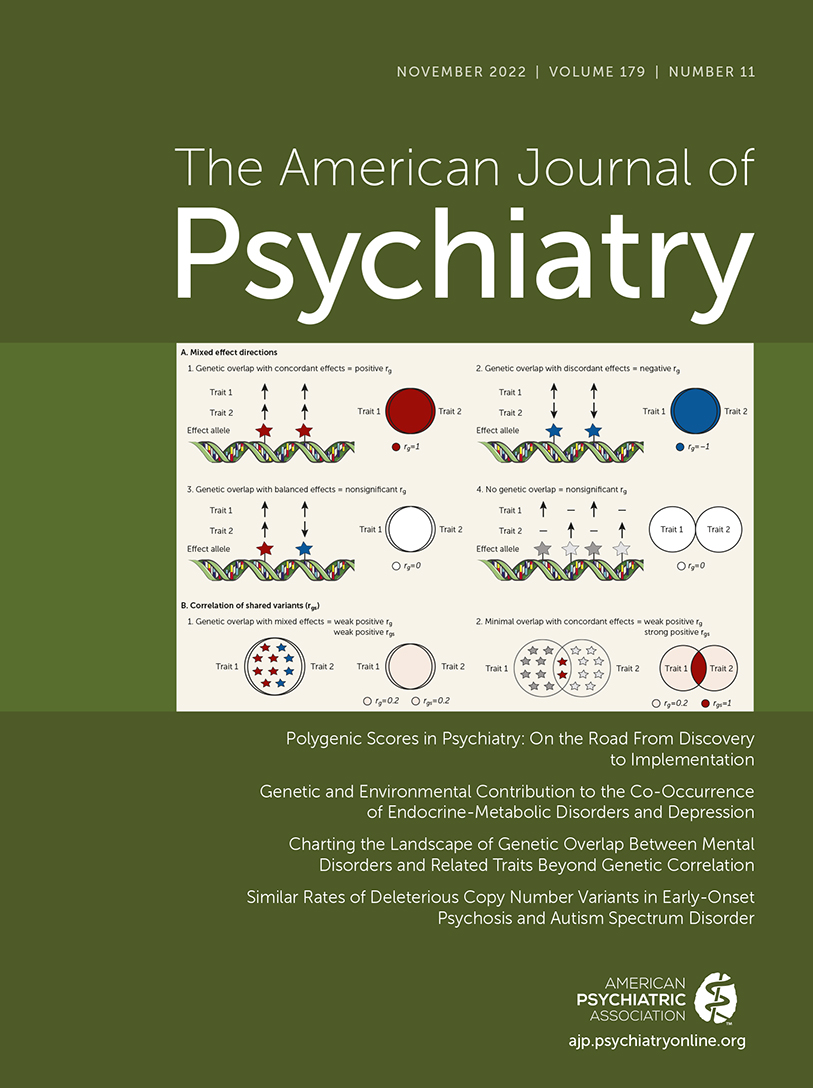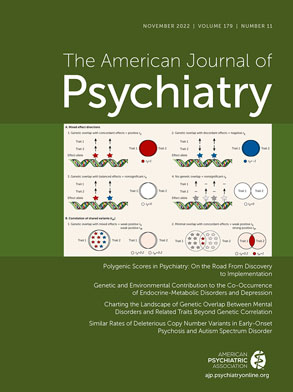T
o the E
ditor: We thank Dr. Jonas and colleagues for their interest in our study (
1) regarding their own recent investigation concerning lead-time bias (
2). Analysis of our prospective, 20-year follow-up study of first-episode psychosis had been completed, and preparation of our manuscript for submission to the
American Journal of Psychiatry was at its final stage when their article appeared. As our study was not conceived or analyzed in relation to lead-time bias, our initially submitted manuscript did not include discussion of this putative effect. We received the comments of five reviewers, three of whom advised that we consider our findings vis-à-vis those of Dr. Jonas and colleagues in relation to lead-time bias, noting the attention generated by their article in the
Journal in its Letters to the Editor section (see the Editorial accompanying our article [
3]), with the opinion that our findings appeared inconsistent with such bias. This we were pleased to do, as elaborated further below.
In their article, Dr. Jonas and colleagues state, “If lead-time bias explains the observed effect [that longer DUP predicts poorer psychosocial outcome], DUP should be associated with psychosocial function only in the period surrounding first admission,” and illustrate in their Figure 1c that the lead-time bias hypothesis would predict this effect to diminish and then disappear during several years following first admission. Our findings indicate that this effect endures across a 20-year period following first admission and therefore appears inconsistent with lead-time bias in terms of the criterion that Dr. Jonas and colleagues themselves propose. In our article we considered putative biopsychosocial mechanisms. However, we agree that lead-time bias was not analyzed specifically in our study and share their aspiration that future studies should investigate this putative effect directly.
Regarding the issue of diagnosis, our study was conceived and analyzed on the basis of the “real-world” diversity of first-episode psychosis, distinct from a schizophrenia-centric perspective of psychotic illness. As described in our article, incorporating affective versus nonaffective psychosis among baseline variables did not materially influence the final statistical models. We note that 1) the most recent meta-analysis on relationships between DUP and outcome found that exclusion of studies involving affective psychosis left the findings from their inclusion to be essentially unaltered (
4), and 2) in a recent exercise conducted by the editors of
Schizophrenia Research, across multiple international experts in the field, one of the majority opinions on psychotic illness was the need not to study schizophrenia as a unitary construct (
5).
We reiterate the critical importance of disentangling all of the relationships mentioned above and confronting the methodological complexities involved in so doing. While the work of Dr. Jonas and colleagues is a stimulus to this objective and has generated useful discussion, it should not detract from the fundamental paradigm of seeking to treat psychotic illness as soon after its onset as is practicable.

